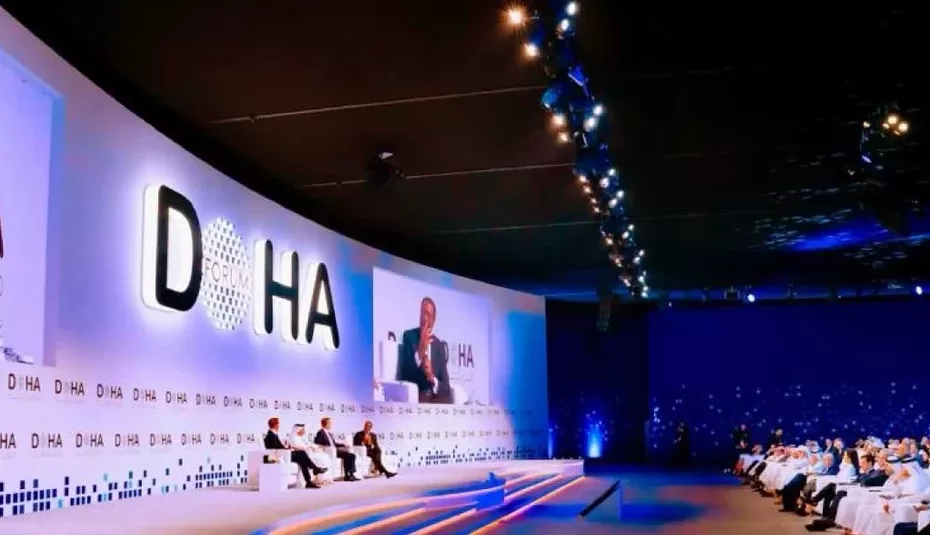The President of the African Development Bank Group, Dr Akinwumi Adesina, has warned Africa about the European Union’s carbon border tax.
He stated that it might lead Africa to export raw materials, jeopardising its progress in industrialization.
The European Union recently launched a Europe-wide carbon border tax on imported goods as a key climate change reduction measure.
Adesina expressed concerns about potential penalties for African countries. He stated,
“African companies that are making cement, steel, aluminium, fertilisers and trying to export to Europe are going to be charged a border tax of 80 euros per tonne.
“That is very expensive, and all that is going to do is that countries in Africa already suffer from tariff escalation.”
“When they add value to what they produce, now you are forcing them down the value chain,” Adesina added.
Adesina was speaking during a high-level panel session at the Doha Forum on Sunday, 10 December.
Qatar’s Minister of Finance Ali bin Ahmed Al Kuwari, Børge Brende, President of the World Economic Forum, and other speakers also addressed the audience.
The AfDB president further added that Africa would lose $25 billion annually.
Additionally, he stressed that Africa should get an exception from that tax because they are funding Africa’s changes.
“You cannot industrialise just by renewables; you need a balanced energy mix that allows you to use your natural gas to be able to industrialise,” he said.
Adesina asserted that Africa should not restrict natural gas in foreign trade, considering it an essential resource.
“Just trade is what we need, but give us just trade for a just energy transition,” Adesina added
Global Climate Shift
He further noted that developed nations are changing the rules by imposing penalties on developing countries.
This pushed them to achieve net-zero carbon emissions sooner than agreed in the Paris Agreement.
This shift also undermines the differentiated responsibility within the agreement and puts pressure on developing nations to meet earlier targets.
Similarly, while giving his remarks on climate restrictions, Børge Brende, President of the World Economic Forum stated,
“Moving to a society which is decarbonised takes time.
“We have to find bridges between coal as the most extreme form of fossil fuel through natural gas.
“We must move at a speed that makes sense, is cost-effective, and entails a price to pay.”
Qatar’s Minister of Finance Ali bin Ahmed Al Kuwari further added,
“Targets set by climate change experts had at times been too ambitious, too aggressive, and had not properly taken into consideration transition periods.
“Qatar, on the other hand, has established a reputation as a responsible supplier of energy to the world,” the minister said.
“It’s very important for climate change goals to be realistic,’ Al Kuwari said.
Adesina also emphasised that Multilateral Development Banks play a crucial role in mobilising funds to support the financial needs of developing nations.
“We need to use the tools we have as we call for the reform of the global financial architecture.
“The multilateral financial institutions are going to be critical. The tools we have—Special Drawing Rights need to be stretched.” he added.
The Doha Forum is a global platform for dialogue by policy leaders on the world’s critical challenges to build innovative and action-driven networks.

